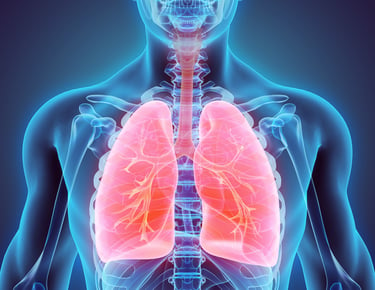eStoreRx™
Online Supplement Dispensary
eStoreRx™ is an easy direct-to-patient ordering & fulfilment program for lifelong wellness.
For over 40 years, Biotics Research Corporation has revolutionized the nutritional supplement industry by utilizing “The Best of Science and Nature”. Combining nature’s principles with scientific ingenuity, our products magnify the nutritional
eStoreRx™ is an easy direct-to-patient ordering & fulfilment program for lifelong wellness.
Biotics Research is proud to expand our commitment to education with the Wellness Unfiltered Pro Podcast. Each episode delves into key health topics and the clinical applications of our premier products. Through candid, insightful conversations, our team offers practical guidance to keep you informed and empowered as a healthcare professional.
February 19 2026
The journal Sleep Medicine Reviews recently published the results of a systematic review and meta-analysis examining melatonin supplementation among c...
 Acute respiratory distress syndrome (ARDS) is a form of acute diffuse lung injury characterized by inflammation leading to increased pulmonary vascular permeability and decrease of aerated lung tissue, resulting in hypoxemia. Nutrition support for hospitalized ARDS patients typically includes lipid emulsions with a higher polyunsaturated fatty acid (PUFA) content derived from omega-6 oils (usually soybean or safflower).
Acute respiratory distress syndrome (ARDS) is a form of acute diffuse lung injury characterized by inflammation leading to increased pulmonary vascular permeability and decrease of aerated lung tissue, resulting in hypoxemia. Nutrition support for hospitalized ARDS patients typically includes lipid emulsions with a higher polyunsaturated fatty acid (PUFA) content derived from omega-6 oils (usually soybean or safflower).
In a recent study, however, the impact of omega-3 fatty acids prevailed over omega-6s. The study investigated the impact of two different omega-3 to omega-6 ratios on lung cell inflammatory response. The proinflammatory response of human alveolar cells was measured when exposed to either a 1:2 or 1:7 ratio of omega-3 to omega-6 PUFAs. The study demonstrated that shifting the predominant fatty acid from omega-6 to omega-3 lowered proinflammatory mediator release in human alveolar cells.
Alveolar epithelial cells were exposed to an inflammatory stimulus composed of bronchoalveolar lavage fluid collected from ARDS patients after intubation and while on mechanical ventilation. The content of proinflammatory cytokines was markedly elevated in the lavage fluid. After 18 hours the cultured alveolar cells were exposed to DHA and arachidonic acid (AA) in 1:2 and 1:7 ratios respectively. 24 hours later the cultures were evaluated for cytokines and prostaglandins release.
Results showed that the 1:2 DHA/AA ratio reversed the predominance of omega-6 over omega-3 in the cell membranes. In addition, proinflammatory cytokine release was reduced by the 1:2 ratio but increased with the 1:7 ratio. Also, the 1:2 ratio reduced COX-2 and PGE2 as well as NF-κB, while it increased activation of PPARγ and IL-10 release.
People eating a standard American diet tend to demonstrate a high omega-6 to omega-3 ratio and it is compelling to note the impact these ratios have on cytokine balance. The ability of DHA to downregulate cytokine and prostaglandin release suggests that this PUFA might be useful as a nutrient to support healthy inflammatory processes.
Related Biotics Research Products:
Submit this form and you'll receive our latest news and updates.
*These statements have not been evaluated by the Food and Drug Administration. This product has not intended to diagnose, treat, cure, or prevent any disease.
© 2025 Biotics Research Corporation - All Rights Reserved
Submit your comment